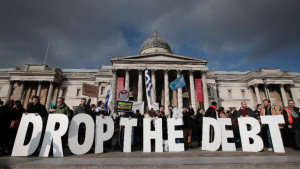
“Mackinder foresaw that ‘Who rules Eastern Europe commands the Heartland and who rules the Heartland commands the World-Island’. The location of Ukraine, bordering on Poland, Bela Rus, Slovakia and Romania clearly marks it as the final lap of the invasion route from Eastern Europe to Russia, hence its strategic importance, aside from its minerals and black earth farmland, to the World Island theory. It inspired the Neo-cons to detach Ukraine from Russia by getting the EU to back the deposition of the democratically pro-Russian President in 2014.”
Mackinder’s theory reflects the twentieth-century worldview according to which power rests with a white, mainly Christian center, to be exercised over a darker, tribal or Muslim periphery. Reprised by Zbig a century later, it remains a colonial theory, the only relevant difference being that a neo-liberal America rather than Europe, was now in charge.
After the dissolution of the Soviet Union, Russia took the initiative of organizing the main world island players into an economic organization, known by the first letters of its members names: Brazil, Russia, India, China, South Africa, or BRICS (Africa being separated from the Eurasian landmass only by the closed Mediterranean Sea.…)
By the time the US, caught up in its self-congratulatory role of lone superpower, realized that the two countries it had identified as future antagonists, Russia and China, had teamed up with three other significant players on the world stage, it could only try to counter the weight of these giants by corralling its partners in Europe and Asia into highly unfavorable trade deals, the TTIP and TPP. The reluctance of these ‘allies’ to sign on the dotted line has left Washington riding the tiger of financialization, hoping to be able to dismount before the world plunges into a worse economic disaster than in 2008.
The May issue of Harpers carries a story that better than numbers and theories illustrates what financialization means. It is titled ‘The Long Rescue’, and in it, Sonia Faleiro tells of a lower caste Indian whose children are kidnapped and taken to Nepal to work 12 hours a day in brick kilns. In “the local government-run school, children of different ages are forced to recite the Hindi alphabet by rote”, causing the older ones to abandon their education and take any menial job offered. Government entities, including the police, do not even try to punish child abductors and ‘employers’.
Financialization’ is about the 1% using money to make more money rather than underwriting industry and services. India is a technological powerhouse involved in that activity, its elites buy designer clothes and travel the world, but they have no interest in preventing child slavery. Its downtrodden have been revolting for decades, even if they do not make the western headlines, and the 2014 election of a Hindu nationalist, Narendra Modi as Prime Minister was probably intended to ease that formerly left-leaning country’s turn toward the United States. This, combined with the impeachment of Brazil’s Workers Party President Dilma Roussef, backed by Washington, signals a determination to break up the BRICS as an organization that threatens US hegemony.
This year will be crucial to determining whether the world economy will return to creating wealth for increasing numbers of the earth’s people, or continue to self-destruct.
Deena Stryker is an international expert, author and journalist that has been at the forefront of international politics for over thirty years, exlusively for the online journal “New Eastern Outlook.”
